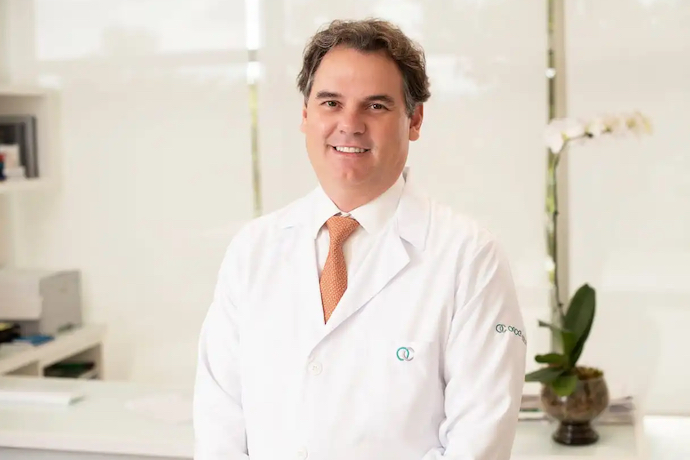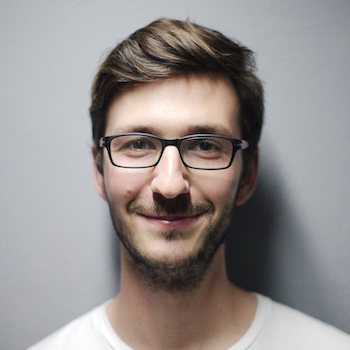
Health
Oncoclinicas: Transforming Cancer Care in Latin America
Oncoclinicas, founded over a decade ago in Brazil, emerged from a vision to bridge the gap between the fragmented oncology care seen in Brazil and the comprehensive, integrated approach found in the United States. Starting with a modest clinic in the founder’s hometown, Oncoclinicas has grown into one of the world’s largest oncology providers, boasting 145 units, including specialized cancer centers and hospitals.
The company’s commitment to innovation is evident in its use of big data and cutting-edge technologies to enhance cancer treatment accessibility and affordability. Additionally, strategic partnerships with institutions like the Dana-Farber Cancer Institute have propelled Oncoclinicas to the forefront of global oncology, enabling it to contribute significantly to clinical research and the development of new treatment protocols. Despite the challenges posed by limited private health insurance coverage in Brazil, Oncoclinicas remains steadfast in its mission to democratize high-quality cancer care across Latin America.
The following is an interview with Dr. Bruno Lemos Ferrari, the CEO of Oncoclinicas.
This conversation has been edited for length and clarity.
What inspired the creation of Oncoclinicas?
I went to the U.S. in 1997 for postgraduate studies in oncology. During my time there, I recognized a significant gap between oncology treatment in Brazil and in the U.S., primarily due to the fragmented approach to diagnosing and treating cancer in Brazil. I decided that something similar to the integrated care I saw in the U.S. could be established in Brazil, and I was determined to make that happen.
Fourteen years ago, I had the opportunity to acquire a small clinic in my hometown with six physicians and ten chairs. We started Oncoclinicas with the vision of providing integrated patient care. Even with only an outpatient clinic, we aimed to cover the entire patient journey.
Fourteen years later, we have grown to become one of the largest oncology providers in the world, with 145 units, including six cancer centers and hospitals dedicated to cancer treatment.

Can you describe the innovative technologies and big data approaches Oncoclinicas uses to improve cancer treatment accessibility and affordability?
It’s crucial. From the beginning, we have been collecting clinical data while treating our patients. We envisioned having the same electronic medical records (EMR) across all clinics, collecting consistent clinical data.
By collecting this data, we can ensure that we have patient outcomes, which helps us to improve our clinical practice. Moreover, we can compare the protocols we use for the same disease, which enhances cost-effectiveness and improves our clinical practice.
Could you share insights into the advances presented at the ASCO ’24 Congress and how Oncoclinicas and other international companies are progressing within the global oncology network?
During the last ASCO meeting (the American Society of Clinical Oncology Annual Meeting), Oncoclinicas presented 34 papers, posters, and clinical oral presentations. Most of them relate to our clinical practices and are part of multicentric clinical trials. We believe that with our large patient base, we can contribute significantly to developing new treatment protocols and indications for cancer treatment.
How does Oncoclinicas address the challenge of democratizing cancer treatments in Latin America?
We have 145 units in 38 cities, ensuring that patients receive the same treatment protocol for their specific disease regardless of the city or type of payer. Currently, we provide infusions primarily for the private sector.
However, our scale allows us to aim for improvements in the public health system as well. We plan to offer not only radiotherapy and diagnostics but also infusion treatments, democratizing high-standard cancer treatment for everyone. At this moment, when discussing infusions, chemotherapy, or systemic treatment, we are mostly focusing on the private health system.
What challenges does Oncoclinicas face in providing care, given the limited health insurance coverage for many people?
Twenty-five percent of Brazil’s population is covered by private insurance, which equates to 52 million people. This is a significant number. The key challenge is to provide the right treatment to the right patient at the right time while maintaining system balance. Oncology treatments are becoming more complex and expensive, and patients are living longer due to improved diagnostics and treatments. Maintaining a balanced system while ensuring patients remain in treatment is a significant challenge.
We call this the personification of the disease. Some patients, for example, with lung cancer, 25% of those patients will live longer than four years. And 10 years ago, before immunotherapies, almost 100% of those patients would die within six months. Therefore, offering the right treatment to the right patient and keeping the system balanced is the real challenge right now.
In your experience, are cancer rates rising in Brazil and Latin America, or are we seeing more people living longer with cancer due to earlier detection and improved treatments?
The most critical factor is the aging of the population. As our population ages, the incidence of cancer, which is a chronic disease, increases. Aging is a significant factor contributing to the rise in cancer cases in Brazil.
Can you provide details about the recent agreement with Master Bank and how it aligns with Oncoclinicas’ future investment plans?
This deal was crucial for Oncoclinicas as it allowed us to improve our capital structure. It also enables us to continue seeking strategic investments in the market. Personally, it allowed me to increase my share in Oncoclinicas.
Could you elaborate on Oncoclinicas’ comprehensive care model that covers the entire cancer treatment journey from diagnosis to recovery? How does this approach improve patient outcomes and quality of life?
It is crucial to cover the entire patient journey from diagnosis to palliative care. Time is a critical factor in cancer outcomes, and our model saves time, which is vital for improving patient outcomes. It is also cost-effective as it reduces unnecessary procedures.
A key aspect of Oncoclinicas is the specialization of our doctors. For example, if a doctor treats breast cancer, they only treat breast cancer. If they treat gastrointestinal (GI) cancer, they only treat GI cancer. This specialization ensures that our doctors stay updated on the latest research and treatments specific to their field.
Can you discuss the partnership between Oncoclinicas, the Dana-Farber Cancer Institute, and Harvard Medical School?
We began our partnership in 2014, initially focusing on the breast cancer department. Over the past decade, we have expanded this collaboration to include all cancer types.
We now have the first cancer center in Brazil in collaboration with Dana-Farber, and we aim to establish six more. This partnership helps us maintain high standards of care and allows us to conduct clinical trials and collect clinical data, which enhances our ability to contribute to cancer treatment research and development.
How does Oncoclinicas balance the use of advanced technology in cancer treatment with maintaining a personalized and compassionate approach for each patient?
We follow scientific protocols and pathways, but we approach patient care individually. We treat our patients as if we were treating ourselves, ensuring a balance between advanced technology and personalized care. The future of the company lies in this balance of scientific rigor and compassionate, individualized treatment.
What are your predictions for the future of cancer treatment, both in Brazil and globally? Where do you see the field heading?
We are advancing in cancer diagnosis and can now identify specific mutations for personalized treatment. For instance, whereas 10 or 15 years ago, we recognized only two types of lung cancer, today we can identify at least 20 different mutations, each requiring different treatments with varying responses. Oncoclinicas has become one of the largest oncology treatment providers by collaborating with international institutions like Dana-Farber and the Weizmann Institute. These partnerships help us contribute to the global advancement of cancer treatment and research.
